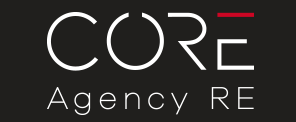The adage “cash is king” can certainly hold true when it comes to home buying. However, your investment might be safer and more productive if you take out a mortgage instead. You need to decide which way will give you the biggest bang for your buck.
Paying Cash for Your Home
- Paying with cash can put you in a better negotiating position, especially in a seller’s market. If you are up against competing buyers for the same property, your cash offer could be very appealing to the seller. Risks to the seller are far lower in accepting your offer and closing is much quicker when you don’t have to wait for a lender to approve a loan.
- Your cash purchase will eliminate some requirements that come with a mortgage, such as title insurance, appraisal fees, and closing costs. It alleviates the seller’s concern that a buyer’s loan application could be denied. In that case, the buyer is forced to start all over with the sale — every seller’s nightmare.
- In addition to benefits for the seller, a cash purchase may also create a discount for you. The seller may be open to reducing the price a bit in exchange for the speed of a cash sale. They understand that the quicker the sale, the faster they can invest or use their money elsewhere.
- If you have a low credit score, that will not stop you from buying a home with cash. You can avoid the hassle of providing the multiple documents required by a lender, which can slow down the process.
- You can avoid sleepless nights worrying about a big monthly mortgage payment hanging over you for years to come. Your monthly household expenses will reduce dramatically when your housing budget only needs to cover insurance, taxes, and maintenance.
- Achieving financial peace of mind is especially true if you are nearing retirement age. Although many Americans retire with years left on their mortgage, it is a bonus if you can stop working without that debt.
What Are the Drawbacks to a Cash Sale
- Tying up all your money in your home reduces your liquidity. You need to have cash available for unexpected expenses, whether it’s a cracked foundation or a medical emergency. If you should lose your income, you need enough cash to keep you afloat for a few months while looking for a new job.
- Mortgage rates are very low currently, making a mortgage loan a cheap investment. If you can put 20 percent down, you will have more room to maneuver financially and pay less than four percent in interest.
- Your money will likely perform better for you if you choose to help it grow by diversifying. Putting all your funds in one place, including your home, is a big risk. The stock market, mutual funds, or other investments are ways to grow your wealth beyond just building equity in your home. Although you may think you will save if you eliminate mortgage interest, the money might actually earn more if you put the cash to work elsewhere.
- Mortgage interest is one of the few remaining tax breaks. The higher your tax bracket, the more valuable this deduction will be for you.
Best of Both Worlds? A Cash Sale Using Equity to be Paid Off Upon Sale of Investment or Converted to Mortgage After Closing.
- All the benefits of paying Cash from above, without tying up all your money in your home so you can have cash available for unexpected expenses.
- If you have enough equity in your current home, use that equity to buy the new home. You can do this via a home equity line of credit or bridge loan.
- Buy the new house with “cash”. Once you’ve closed on the new house, or once you’re under contract on the new house, list your current house and pay off the balance of your mortgage and the equity line or bridge loan when the existing house closes.
- Added bonus is the luxury of time to get painting or cleaning done on the new house while you still have a roof over your head and no one is rushing you out of your existing home.
As you probably expect, only a minority of housing purchases in the U.S. are made with cash. Yes, there are advantages, but do you want to have so much of your liquid assets tied up in your home? Your real estate agent and your financial advisors are excellent counselors to help you make your decision.
